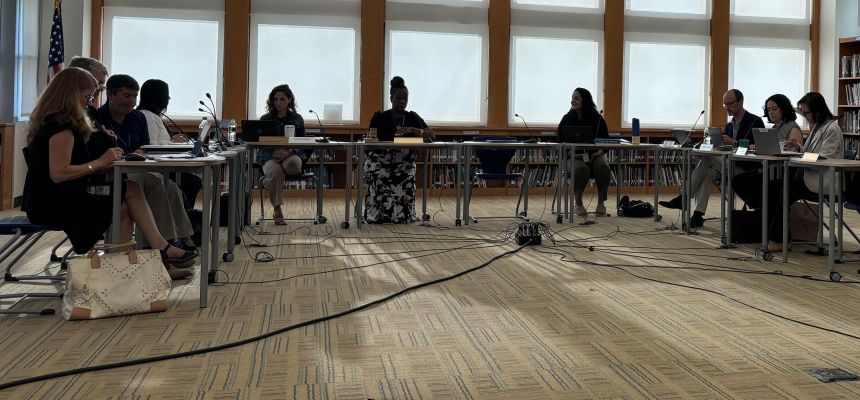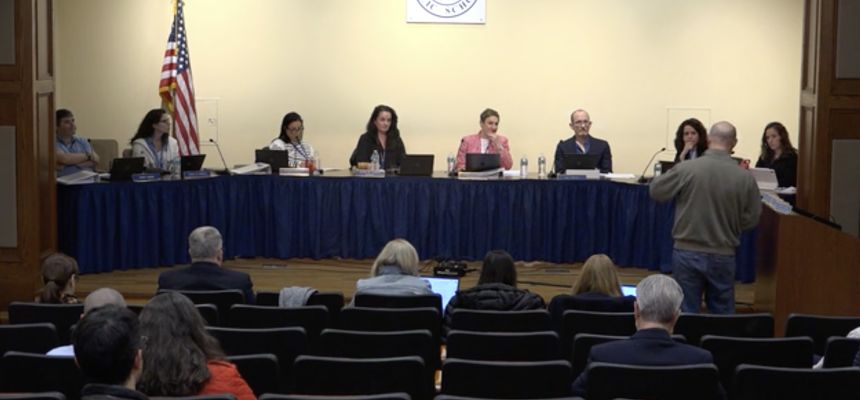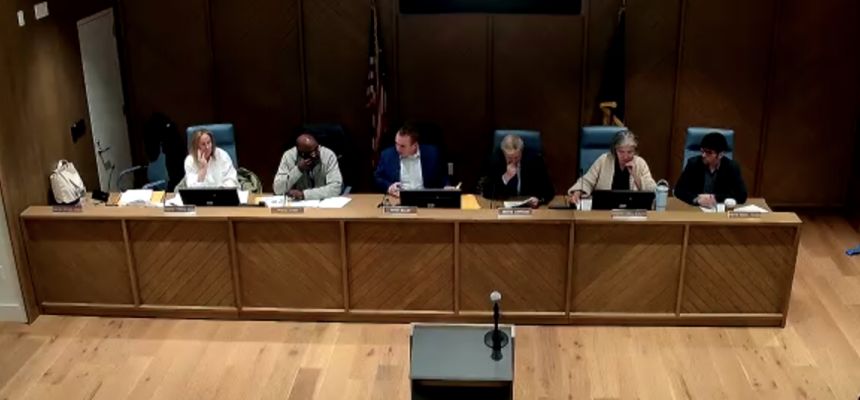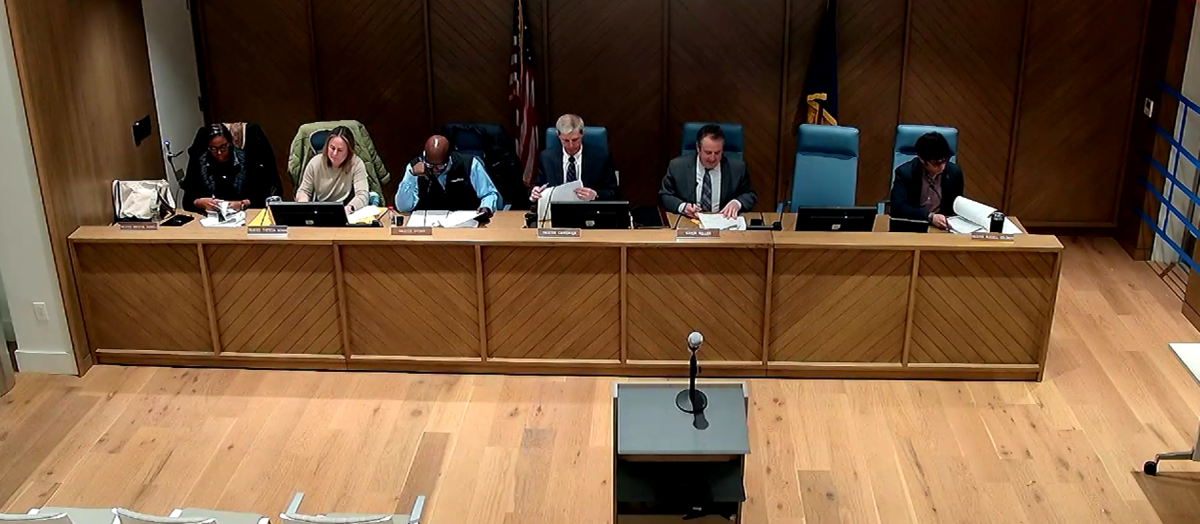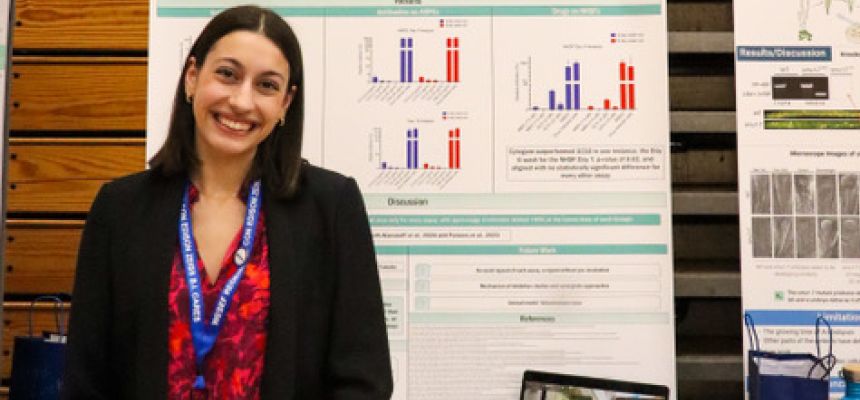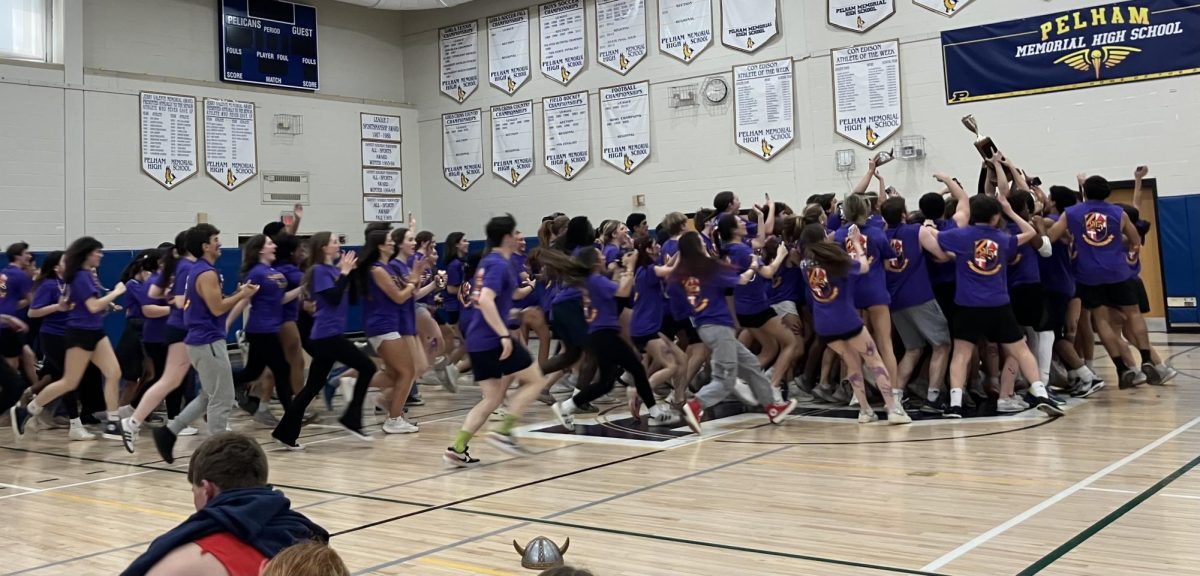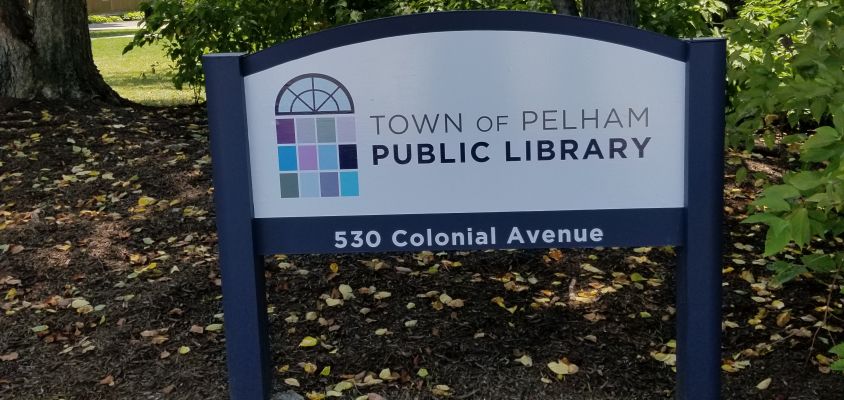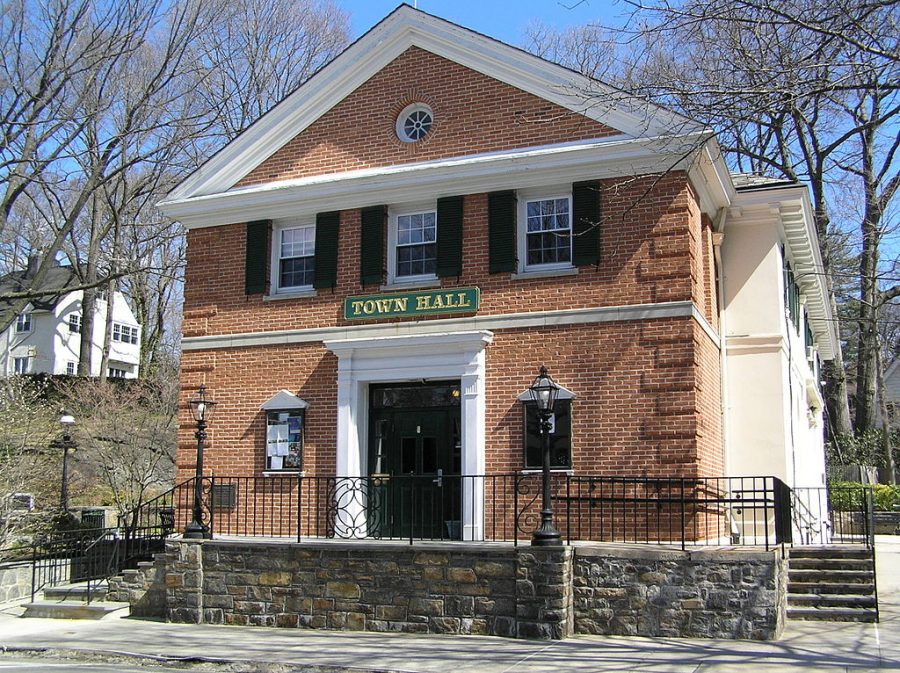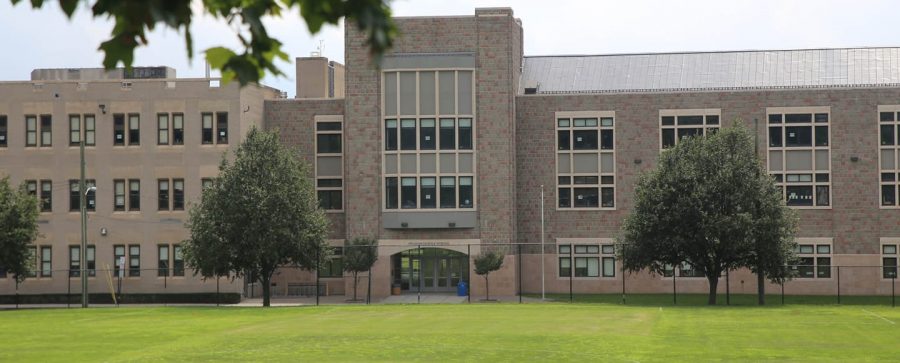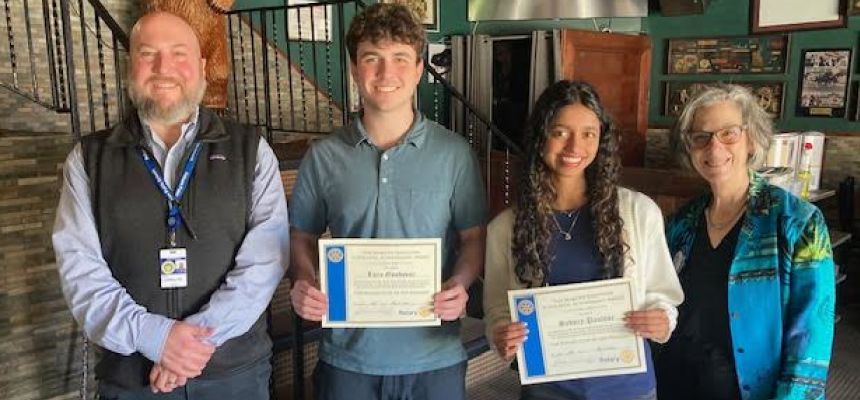After months of public discussion and a 5-2 vote in June in favor of the most restrictive option proposed, the newly constituted Pelham Board of Education voted unanimously July 2 to go in a different direction on a district policy for cell phone usage at Pelham Memorial High School.
Under the resolution adopted by the trustees, this coming school year students can use digital devices during non-instructional time—the proposal rejected by five board members June 18 in favor of a complete ban. But a more comprehensive ban is still likely the following year. Next spring, the administration must present to the board a policy to transition to having “most or all spaces and times within the school being cell phone free” for 2025 and beyond “with a goal of limiting cell phone use on campus to the greatest extent feasible,” the resolution said.
The change to a layered introduction of the stricter policy came after Ian Rowe and Dr. Michael Owen-Michaane left the school board June 30 following their defeat in the district election in May. Rowe was a key leader in the yearlong drive for a district policy covering digital devices in the high school. On June 18, when two policy options had their second reading, Rowe, Owen-Michaane and fellow trustees Sidney Burke, Natalie Marrero and Will Treves voted for imposing an outright ban starting in September. Under both versions, PMHS students would be able to use devices if they have permission from a teacher or other official for medical or other instructional purposes.
New Trustees Kathryn Cohen and Darra Gordon, who defeated Owen-Michaane and Rowe, took their seats on the board at the July 2 meeting, which was the board’s annual reorganization session and a regular business meeting. (Gordon attended via Google Meet, as did Superintendent Dr. Cheryl Champ due to a family emergency.)
The vote on the one-year delay for the ban followed a discussion during which Treves pointed to the failure of the rules on digital devices in the high school’s student handbook.
“What happened in Pelham is there was a ruleset around cell phone usage, and I think it’s fair to say it was completely ignored,” Treves said. “Whether it was in the student handbook or anywhere else, there are rules, guidelines, designed to restrict cell phone usage, and they failed.” As someone who voted for the complete ban, he said, “because they have seen the failure of a previous ruleset, what reassurance could you give me that option one would work this time? Because it didn’t seem to the last time it was tried.”
‘Don’t Want to Get this Wrong’
In response, Champ said, “The system that was set up before was set up to enable teachers to have autonomy in their classrooms. And I think that’s exactly what we have. Some teachers do want a completely phone-free learning environment, while others just have a different perspective. The minute you have a range of flexibility and autonomy, as soon as you open that door, then it definitely creates an environment that is less consistent.”
“I’ve spoken with the building administrators and already their thought is to put together a shared stakeholder task force,” the superintendent said. This would include students, parents and staff working on the creation of a plan to enforce the more restrictive policy.
“You very often have to change behavior before belief will follow,” said Champ.
According to Champ, building administrators are focusing on how to shift the culture of PMHS and encourage more face-to-face interaction, including getting as many ninth graders into seventh period lunch as possible, making the cafeteria spaces more inviting and moving students out of the hallways, with one goal being to train the freshman as new high school students that peer-to-peer connections represent the culture of PMHS.
Cohen said she supported the delay because “we don’t want to get this wrong.”
Before the board discussion, PMHS Student Association President Kira Findikyan and a Pelham parent both spoke in favor of the less restrictive policy and expressed concerns about the implementation of a ban.
“I recognize this is a complex issue, and I want to reiterate that I am not in any way saying that no cell phone restriction policies are necessary,” said Findikyan. “Instead, I am urging the board to meet the students where we are and vote accordingly for the more lenient policy.” (Findikyan is an assistant managing editor of the Pelham Examiner. She was not representing the newspaper at the meeting and had no role in the writing and editing of this story.)
In part, the requests from the public speakers for more detailed information on the application of the most restrictive policy seemed to encourage the board to move to allow the administration a year to present a final plan for the ban.
The texts of the original two versions of the cell phone policy for PMHS can be read here.
Trustees Speak as They Elect Officers
Before the policy discussion, the trustees held their annual reorganization meeting, unanimously electing Trustee Jackie De Angelis as board president and Marrero as vice president.
The board broke with its practice of the previous five years of unanimously approving the two officers without any discussion. The prior approach clearly indicated that before those earlier reorganization meetings the leadership positions were decided behind closed doors in executive sessions that violated the New York Open Meetings Law. A day earlier, the Pelham Examiner notified all the trustees that discussion of and seeking consensus on who should be president and vice president of the board of education must be done in open and public session.
Before the officer elections, Treves and Cohen each said they did not want to be considered for board president. Such public statements had not been made by trustees going back at least five years. Several board members spoke in favor of both De Angelis and Marrero before the votes for each of them—which was also new this year.
As those comments were brief and the vote for both officers unanimous, it’s difficult to know if the two candidates had already been picked in the backroom, with the public comments political theater to create the appearance of adherence to the Open Meetings Law.
Unfortunately, anyone wishing to listen to this portion of the meeting cannot because there is no audio “due to technical difficulties,” as the message reads on the board meeting video. The audio gap runs from the pledge of allegiance through the election of De Angelis and Marrero, including the board members’ comments. The audio starts after the election of the board officers and the swearing in of the district clerk.
The district is not sure what caused the first 11 minutes and 41 seconds of audio to not record, said Public Information Officer Alex Wolff. “Once it was identified, our AV team was able to get the sound working again. Unfortunately, there is no backup sound for that portion of the meeting. The meeting minutes will reflect the outcome of the discussion.”
- The Pelham Examiner reports on education from Kindergarten musicals to board of ed meetings. Give now to support the nonprofit community newspaper that covers Pelham schools.



